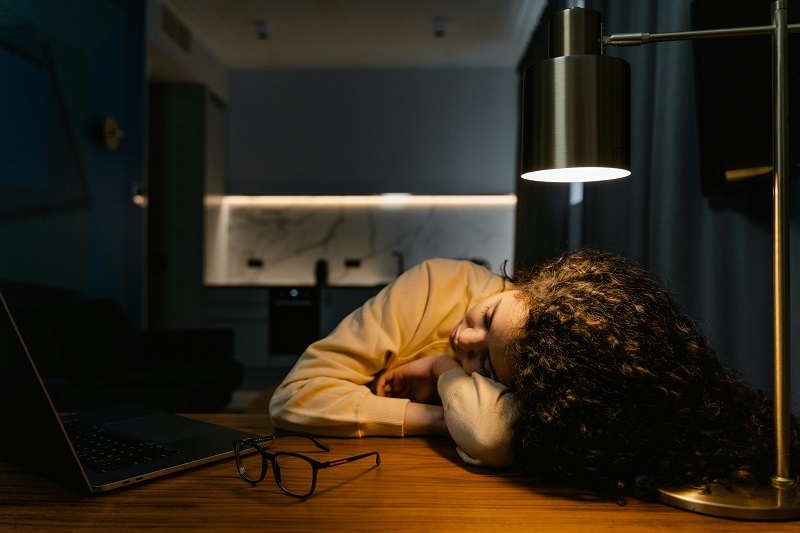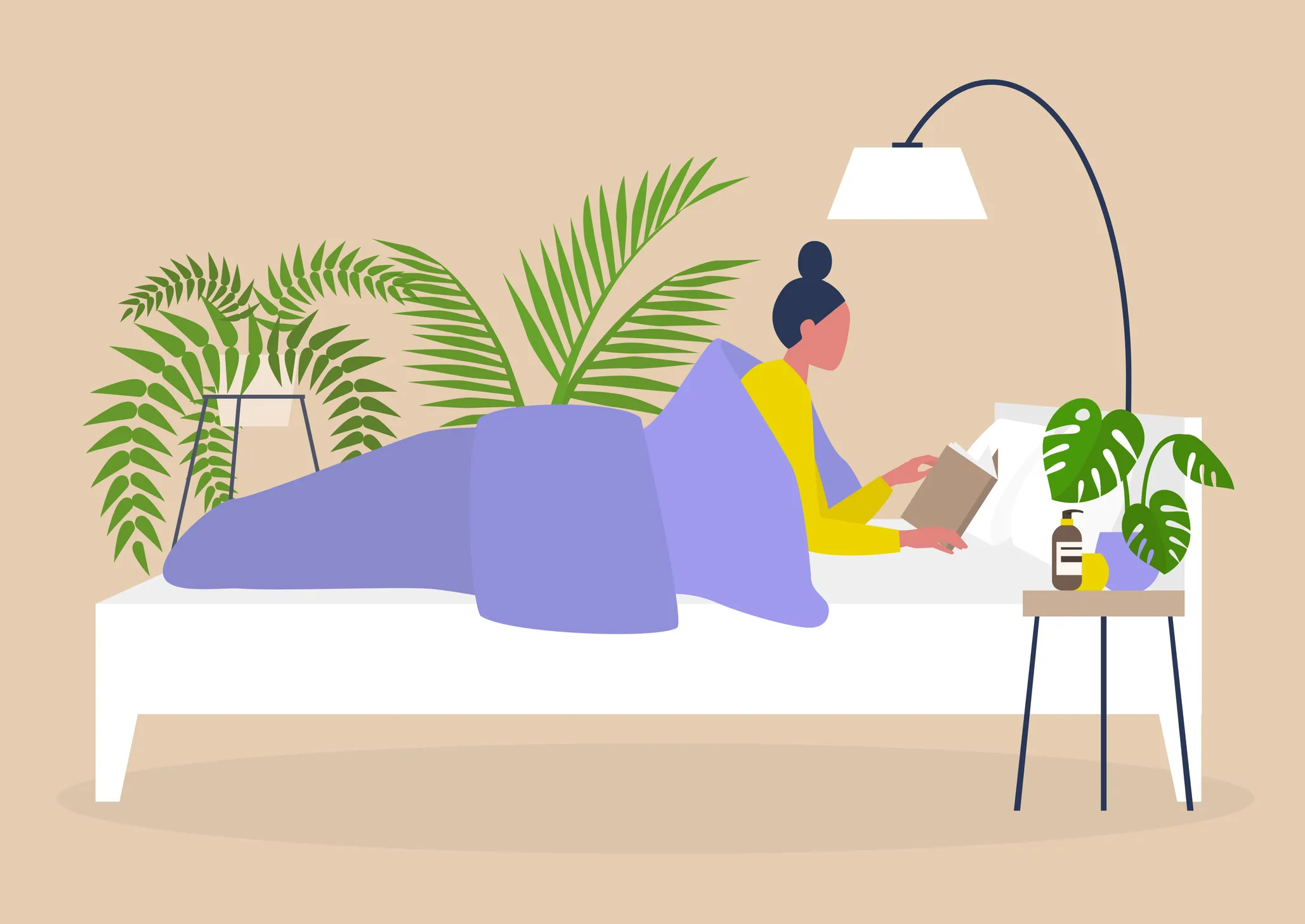Good sleep habits are essential for feeling rested, improving health, and boosting daily performance. Establishing consistent sleep routines, creating an optimal environment, and understanding your body’s natural rhythms can transform your nights. For a deeper dive into daily practices, check out our guide on sleep hygiene tips. This guide covers the most effective and science-backed strategies to enhance your sleep habits for long-term wellbeing.
Understanding Sleep and Its Importance
Have you ever wondered what actually happens when you close your eyes at night? Sleep isn’t just about “switching off.” It’s an active, complex process that’s crucial for our minds and bodies.

Our sleep is structured into cycles, primarily consisting of two different types: Non-Rapid Eye Movement (NREM) and Rapid Eye Movement (REM). We cycle through these stages several times a night. NREM is for physical repair—think tissue growth and cell repair. REM sleep is more for the mind, helping with memory consolidation and emotional processing.
This whole process is governed by our internal body clock, the circadian rhythm. This rhythm tells our body when to feel sleepy and when to be alert. It works hand-in-hand with melatonin, the “sleep hormone,” which signals that it’s time to wind down. When these systems are out of sync due to poor sleep habits, the consequences can ripple through our entire day, affecting everything from our mood and focus to our immune system. Chronic sleep deprivation is a serious issue that can impact long-term health.
Building a Consistent Sleep Schedule
One of the most powerful things you can do for your sleep is to create a consistent schedule. This means going to bed and waking up around the same time every single day—yes, even on weekends.
Consistency reinforces your body’s circadian rhythm. When your internal clock is stable, your body learns to anticipate sleep and wakefulness, making it easier to fall asleep at night and wake up feeling refreshed. If you’re struggling to get your timing right, you might find some useful strategies in our article on how to fix your sleep schedule. For those nights when you simply can’t drift off, learning how to fall asleep fast with proven techniques can be invaluable.
Benefits of Regular Sleep Timing
Sticking to a schedule isn’t just about feeling less tired. The benefits are significant:
- Improved Mood: Regular sleep helps regulate emotions, making you less prone to irritability and stress.
- Enhanced Cognitive Function: Your focus, problem-solving skills, and creativity get a major boost.
- Better Physical Recovery: Consistent rest allows your body to effectively repair muscles and other tissues, which is especially important if you’re active.
Strategies to Maintain Consistency
Making it a habit takes a bit of effort, but these simple strategies can help:
- Set Alarms: Use an alarm not just for waking up, but also as a reminder that it’s time to start winding down for bed.
- Create a Ritual: A simple pre-sleep routine signals to your brain that it’s time for sleep. This could be reading a book, gentle stretching, or listening to calm music.
- Limit Weekend Changes: Try to keep your weekend wake-up time within an hour of your weekday schedule to avoid that “social jetlag” feeling on Monday morning.

Creating an Optimal Sleep Environment
Your bedroom should be a sanctuary for rest. The physical environment plays a huge role in the quality of your sleep. Think of it as setting the stage for a good night’s rest.
The ideal temperature for sleep is surprisingly cool, generally between 65-68°F (18-20°C). Darkness is also key, as light can suppress melatonin production. And of course, minimizing noise is essential for uninterrupted sleep. Even minor disruptions can pull you out of the deeper, more restorative sleep stages.
Bedroom Setup Tips
Here are a few practical ways to optimize your space:
- Light Control: Use blackout curtains or an eye mask to block out all light. Even small amounts from streetlights or electronics can be disruptive.
- Noise Management: If you live in a noisy area, consider using a white noise machine or earplugs to create a consistent, peaceful soundscape.
- Comfort is Key: Invest in a comfortable mattress and pillows that support your preferred sleep style. The right bedding can make a world of difference. Considering the best sleep position for you can also be a game-changer.
- No-Work Zone: Keep laptops and work-related materials out of the bedroom. Your brain should associate this space with rest, not stress.
The Role of Technology
While it’s best to keep screens out of the bedroom, some technology can actually help. Sleep trackers can provide insights into your sleep patterns, and smart home devices can automate your environment by dimming lights and adjusting the thermostat at a set time. Just be careful not to get too obsessed with the data—use it as a guide, not a source of anxiety.
Pre-Bedtime Habits and Wind-Down Routines
How you spend the hour or two before bed can make or break your night. A “wind-down” routine is a transition period that helps you shift from the busyness of the day to a state of calm readiness for sleep.

This means reducing exposure to blue light from phones and screens, which can interfere with melatonin. It also means avoiding stimulants like caffeine and heavy meals close to bedtime. Instead, focus on activities that relax you. This is a core part of what’s often called sleep hygiene.
Mindful Movement and Relaxation Techniques
You don’t need an elaborate routine. Even 10-15 minutes of a calming activity can be incredibly effective.
- Gentle Stretching: Focus on releasing tension in your neck, shoulders, and back.
- Breathing Exercises: A simple box breathing technique (inhale for 4 seconds, hold for 4, exhale for 4, hold for 4) can calm your nervous system.
- Meditation: Guided meditation apps offer sleep-focused sessions that can help quiet a racing mind.
Managing Lifestyle Factors Affecting Sleep
Our daily habits outside of the bedroom have a profound impact on our nights. What you eat, how you move, and how you manage stress are all interconnected with your sleep quality.
Regular exercise is fantastic for sleep, but intense workouts too close to bedtime can be overstimulating for some. A balanced diet also plays a role, as certain nutrients support sleep while heavy, rich foods can disrupt it. And perhaps most importantly, finding healthy ways to manage stress is crucial. If stress is what keeps you up, exploring ways of how to sleep when stressed can provide targeted relief. Chronic stress can sometimes be linked to conditions like sleep apnea, so managing it is vital for overall health.
Hormones and Sleep
For many, sleep quality can change due to hormonal fluctuations. It’s helpful to understand these shifts so you can adapt your sleep habits accordingly.
During the menstrual cycle, changes in progesterone and estrogen can affect sleep architecture, sometimes leading to sleep disturbances before or during a period. Similarly, during perimenopause and menopause, declining estrogen levels are often linked to night sweats and insomnia.
During these times, it’s even more important to be diligent with your wind-down routine, maintain a cool bedroom, and focus on stress-reducing activities. Listening to your body and giving yourself extra grace during these phases is key.
Conclusion
Building better sleep habits isn’t about perfection; it’s about consistency and finding what works for you. By creating a regular schedule, optimizing your environment, and adopting a relaxing pre-bedtime routine, you can fundamentally change your relationship with sleep.
Start small. Pick one or two tips from this guide and integrate them into your life. Over time, these small changes will build into a powerful foundation for better rest, health, and wellness. For more tips and insights on living a balanced life, feel free to explore more on my blog at www.notonetype.org.
Frequently Asked Questions (FAQ)
1. How long does it take to fix my sleep schedule?
It typically takes a few days to a week for your body to start adjusting to a new sleep schedule, but it can take a few weeks to feel the full benefits. Consistency is the most important factor.
2. Is napping bad for my sleep habits?
Short naps (20-30 minutes) early in the afternoon can be beneficial for some people. However, long or late-afternoon naps can interfere with your ability to fall asleep at night.
3. What should I do if I wake up in the middle of the night?
If you can’t fall back asleep after about 20 minutes, get out of bed and do a quiet, relaxing activity in dim light, like reading a book. Return to bed only when you feel sleepy again. Avoid looking at your phone.


Có thể bạn quan tâm
How to Go Back to Sleep After a Nightmare: 7 Proven Techniques That Work
Waking up in a cold sweat, heart pounding against your ribs, is a jarring way...
Nov
How to Go Back to Sleep: Simple Techniques That Actually Work
Waking up in the middle of the night and struggling to fall back asleep is...
Nov
How Long Should It Take to Fall Asleep? Understanding Normal Sleep Latency
If you’ve ever laid in bed wondering whether you’re taking too long to drift off—or...
Nov
6 Tricks to Fall Back to Sleep Fast When You Wake Up at Night
Waking up in the middle of the night can be frustrating, especially when your mind...
Nov
How to Sleep Fast in 2 Minutes: Military Method & Proven Tips
Struggling to fall asleep is something most of us have dealt with. You lie in...
Nov
How to Fall Asleep Fast: 12 Techniques That Work in Minutes
Tossing and turning at night is frustrating, especially when you’re exhausted but your mind won’t...
Nov